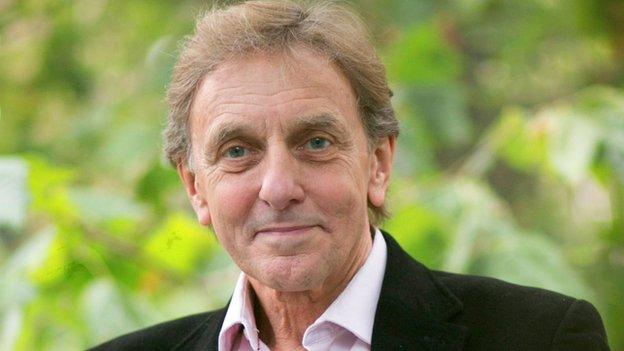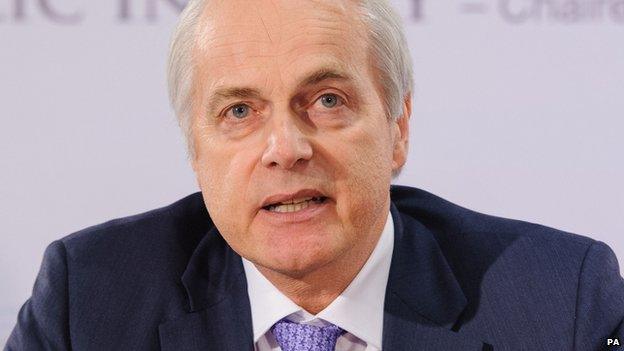Prof Colin Blakemore: Medical research defender knighted
- Published

Prof Colin Blakemore became a hate figure for animal rights campaigners
An influential scientist who defended medical research on animals, despite threats to his life, has been knighted in the Queen's Birthday honours.
Prof Colin Blakemore, 70, was recognised for his research and for communicating the importance of often controversial science.
Robert Francis QC, who led the inquiry into one of the most shocking scandals in NHS history, is also knighted.
As is Prof David Spiegelhalter for services to statistics.
Neuroscientist Prof Blakemore specialised in vision and how the brain continues to change even into adulthood.
He has been at the forefront of a field which has changed dramatically since he was a medical student at Cambridge University.
Protests
But he is widely known as a champion for science and communicating both the risks and potential benefits of controversial research to the public.
He became a hate figure for animal rights campaigners who would protest outside his house, throw bricks at his windows and worse.
"There were times I was shocked by what happened to me - razor blades in envelopes, bombs, threats against my kids - but I never doubted the principle of public engagement," he told the BBC.
Reflecting on his career he said: "I think we have an obligation. If the scientists themselves are always just anonymous figures behind the scenes, then I think the public have reason to be suspicious about our motives.
"It is important for science to be in the public arena including the difficult things such as animal research, climate change or stem cells."
He was chief executive of the Medical Research Council between 2003 and 2007, but became the only chief executive in the organisation's history to leave office without being knighted.
Government documents suggested this was due to his high-profile stance on animal experiments.
He told the BBC becoming "Sir Colin" would take "some getting used to" and that it was the "recognition and acknowledgment" which were important to him.
'Extraordinarily brave'
The knighthood has drawn widespread support within the scientific community.
The director of the group Sense About Science, Tracey Brown, said: "This is recognition of something that some of us have known for a long time, that Colin Blakemore is not only an excellent scientist but a genuine leader in discussing the most difficult research issues openly with the public.
"He put himself forward for public discussion on the hard issues, from animal testing to the MMR vaccine controversy, at a time when the authorities ran for the hills."
Prof Sir John Savill, chief executive at the Medical Research Council, said: "Prof Blakemore is a highly regarded researcher and has served UK science over many years extremely well.
"His support for the use of animals in research has been extraordinarily brave, he led the way on openness at a time when this was at great personal risk to himself and his family."
Dr Jeremy Farrar, the director of the Wellcome Trust medical research charity, said: "Besides his groundbreaking work in neuroscience, he has paved the way for open communication on scientific issues of public importance."
Mid-Staffs inquiry

Robert Francis QC
Robert Francis QC, who led the public inquiry into one of the most shocking failings in NHS history, has also been recognised in the honours list.
The care at Stafford Hospital left some patients drinking water from vases, it is claimed, and receptionists assessing emergency cases.
Mr Francis made 290 recommendations, external to improve care within the NHS.
He will be knighted for "services to healthcare and patients".
He told the BBC: "I feel very honoured, but above all pleased at the recognition of the importance of getting the service right, which remains a work in progress."
Also knighted is David Spiegelhalter, the professor for the public understanding of risk at the University of Cambridge, for "services to statistics".
He has championed better understanding of figures in the media, schools and government, and was an adviser on the new GCSE curriculum.
"Statistics is not very sexy to be honest, so I'm very honoured and gratified that somebody thinks statistics is worth working on, so I'm very pleased for myself and the field."